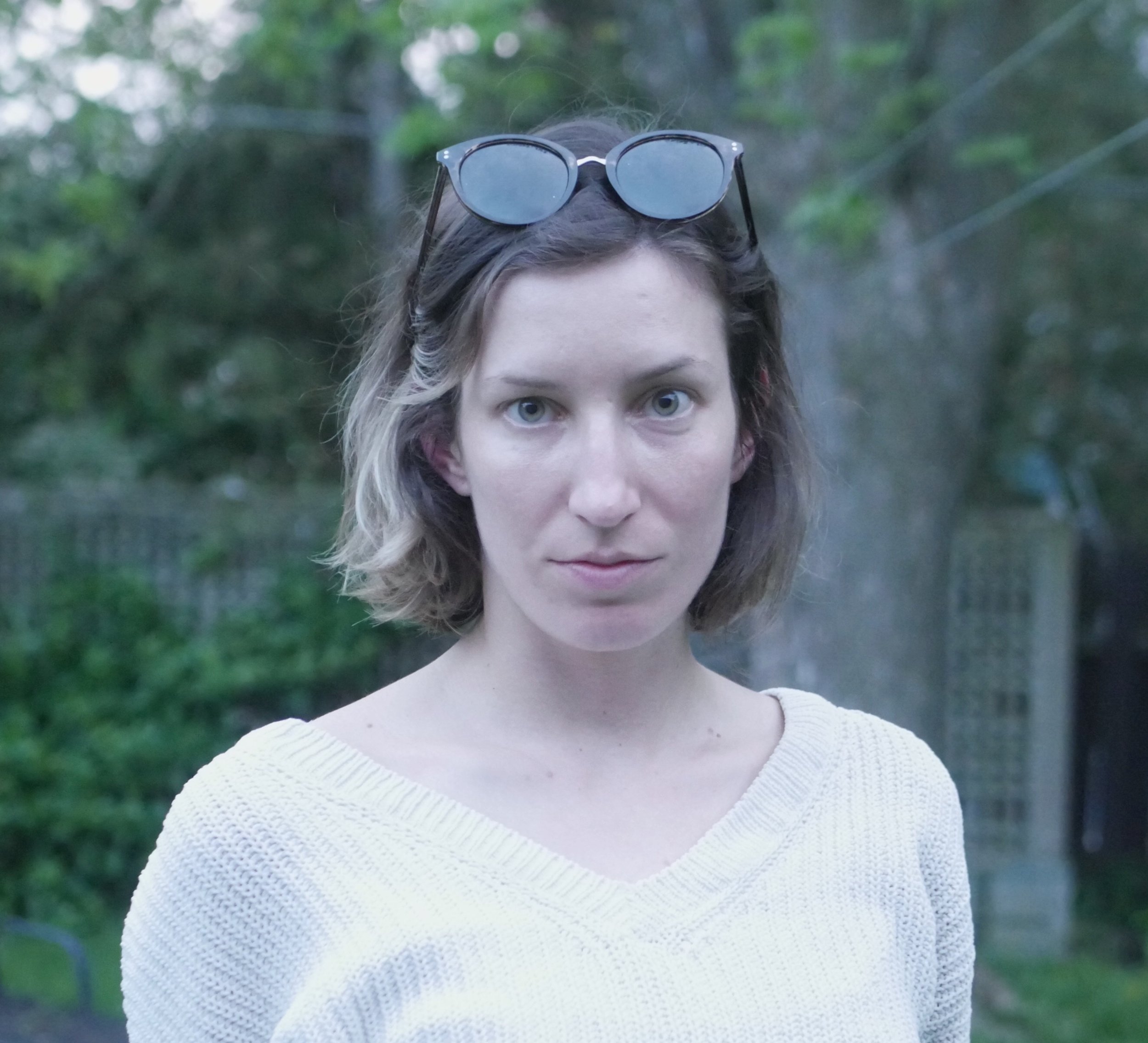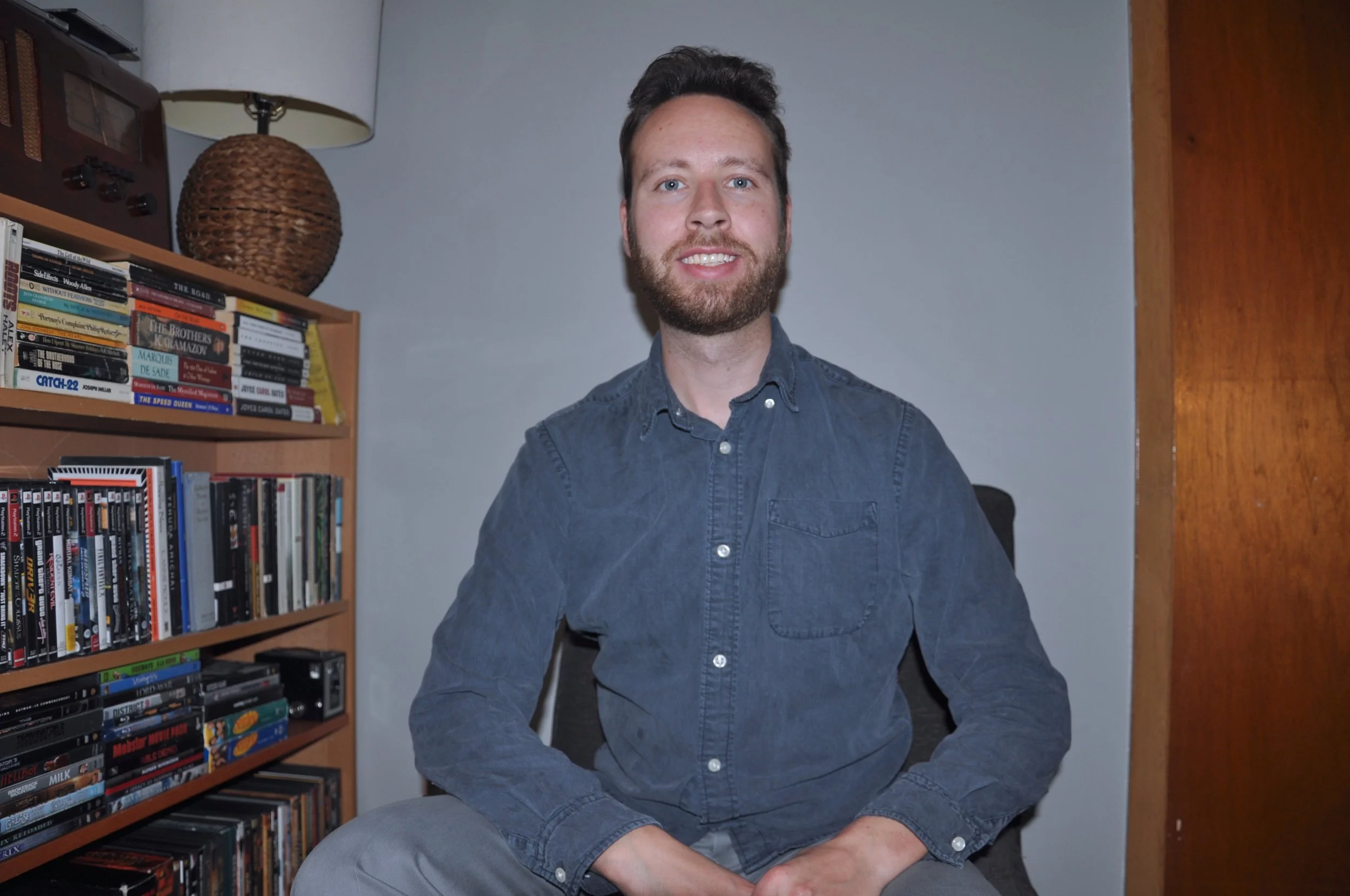Steering Committee
-
Bojana Babić
Bojana Babić is a writer, filmmaker and a PhD student in Screen Cultures and Curatorial Studies at Queen’s University. She completed a BA in Screenwriting and an MA in Film at universities in Portugal, Scotland, and Estonia. Her research and filmmaking focus on gender, migration, humor, negative affect and the everyday aesthetics.
-

Emily Barton (Co-Chair)
Emily Barton is a PhD student at York University. Her work focuses on women loving women, cinema and the archive in queer worldbuilding.
-
Keith Bennie
Keith Bennie is the Director of Audience & Community at the Toronto International Film Festival, where he leads four streams of learning initiatives: public programming, youth impact, community impact, and library and archives. He is an arts education leader with previous roles at the Ontario Science Centre, Theatre Museum Canada, and IGLYO. Bennie teaches about public programming at Humber College and was selected as a Toronto Arts Council Leaders Lab fellow.
-

Liz Clarke
Liz Clarke is an Assistant Professor at Brock University. She teaches classes in popular narrative, serial storytelling, film history, film theory, film and TV genres, and gender film and TV. Her research examines women in film and television both on and off the screen. Her current book project is on women in war films from 1908 to 1918. She also researches women writers in film and television from the silent period to contemporary female show-runners.
-

Kathleen Cummins
Kathleen Cummins, PhD (her/she) is a professor in the Film and Television department at Sheridan College. Her research interests include feminist cinemas, Irish-language cinema, and Indigenous media. Kathleen’s writing has appeared in periodicals and peer-reviewed books. Her most recent publication is Herstories on Screen: Feminist Subversions of Frontier Myths, Wallflower Press, 2020. As a filmmaker, her films and screenplays have received support from the Ontario Arts Council, National Film Board of Canada, Telefilm-Canada, Harold Greenberg Screenwriting Fund, TVO, and CBC.
-

Desirée De Jesus
Desirée de Jesus is an assistant professor in the Department of Communication and Media Studies at York University. She is also a video essayist and moving images curator. Her research and teaching explore the intersections of race, gender, aesthetics, and technology in narrative film and media through traditional, creative/curatorial, and maker methodologies.
-

Malini Guha (Co-Chair)
Malini Guha is an Associate Professor of Film Studies at Carleton University. She is a settler of South Asian descent. Guha is cross-appointed with the Institute for Studies in Art and Culture and is affiliated with Migration and Diaspora Studies. Her research interests are expansive, extending from a longstanding commitment to thinking and writing about film and the city as well diasporic and postcolonial cinemas to more recent turns toward the subject of world cinema and other moving image practices, including public projection.
-

Aydan Hasanova
Aydan Hasanova is pursuing their MFA in Interdisciplinary Arts, Media and Design at OCAD University. Their research interests are Soviet Azerbaijani cinema, cultural theory, haptic visuality and feminism. Her artistic practice involves installation with video projections and found materials, frame-by-frame animation, illustration and visual design.
-

Roxanne Hearn
Roxanne Hearn is a PhD student at Wilfrid Laurier University. She is currently working on her dissertation, which analyses movement as a narrative strategy in dance films. The dissertation focuses on films that challenge heteronormativity and traditional gender representations because they use movement as a narrative strategy in constructing subversive stories and representations.
-
David Jackson
David Jackson is a PhD candidate at Wilfrid Laurier University, whose research interests concern the cinematic sublime, early cinema, cinemas of the Global South and popular genres. His dissertation examines the history of the technological sublime as it manifests across the history of science-fiction, horror, and fantasy cinemas.
-

Mark Lipton
Mark Lipton is a Professor in the School of English and Theatre Studies at the University of Guelph. He also teaches in the Media Studies program at the University of Guelph-Humber. He has research interests in education, alternative ways of knowing, learning, and teaching; as well as studies in communication, media, popular/media cultures, science/technology, performance, improvisation, queer/LGBTQ+, embodiment, somatics, mobilities, abilities, everyday life, and media ecology.
-

Patrick Marshall
Patrick Marshall is a PhD student at the University of Toronto. His dissertation examines the proliferation of the political conspiracy thriller (Costa-Gavras, Rosi, Fassbinder, Pakula etc...) across Europe and America in the 1970s by situating this genre in relation to the radical political activity of 1968. He focuses on the way that this genre deployed the moral-aesthetic codes of melodrama and the narrative conceit of conspiracy to explore questions of violence in the political sphere and to re-position the citizen-spectator in relation to the State.
-

Gabriel Menotti
Gabriel Menotti is Associate Professor in Moving Images Curatorial Studies at Queen's Film & Media Department. He works as a curator in the fields of cinema and digital/new media. He is also one of the coordinators of the Besides the Screen research network and has written extensively on image and technology.
-

Taien Ng-Chan
Taien Ng-Chan is a writer, media artist, and assistant professor in Cinema and Media Arts at York University. She completed her PhD at Concordia University’s Centre for Interdisciplinary Studies in Society and Culture (CISSC). Her research explores experimental processes of urban mapping and sound art, “object-oriented storytelling,” and futurist imaginings of everyday life in the Asian Diaspora through immersive cinema, both in VR headset and dome projection modes.
-

Dhvani Ramanujam
Dhvani Ramanujam is an emerging curator and PhD student in the Cinema and Media Studies program at York University. Her research and curatorial practice primarily focuses on experimental moving image, sound art, the materiality/spatiality of film installation. In 2022, she curated the Pleasure Dome sponsored film program planetary ruins & other possibilities, and served as co-chair of the annual Communication and Culture graduate conference on the theme “The Politics of Sound,” co-hosted by York University and Toronto Metropolitan University. Currently, she is also a research assistant for Archive/Counter-Archive.
-

Kate J. Russell
Kate J. Russell is a PhD candidate in Cinema Studies at the University of Toronto, where she also completed her Masters in Cinema Studies. Her SSHRC-funded dissertation project focuses on John Waters and the comedic potential of cult spectatorship. Her interests more broadly include gross-out comedy, cult cinema, and abjection. Her essay “The Cinematic Pandemonium of William Castle and John Waters” appears in ReFocus: The Films of William Castle (University of Edinburgh Press, 2018).
-

Cleo Sallis-Parchet
Cleo Sallis-Parchet is a PhD student in Cinema and Media Studies at York University. Her research examines the ephemerality and variability of media, cinematic and digital art forms and its impact on preservation practices for artists and archives. Furthermore, she is investigating the role and responsibility of the institution in preserving, transmitting, and extending the life of vulnerable media and obsolete technologies.
-

Katherine Spring
Katherine Spring is Associate Professor in the Department of English and Film Studies at Wilfrid Laurier University. She is the author of Saying It With Songs: Popular Music and the Coming of Sound to Hollywood Cinema (Oxford UP, 2013), co-editor (with Philippa Gates) of Resetting the Scene: Classical Hollywood Revisited (Wayne State UP, 2021), and articles in Cinema Journal, Film History, and Music and the Moving Image as well as chapters in anthologies including Palgrave Handbook of Sound Design and Music. The recipient of multiple SSHRC research grants, she won the 2017 WLU Faculty of Arts Teaching Scholars Award. Her current project is a book-length history of electronic music in American cinema.
-

Aaron Tucker
Aaron Tucker is currently a PhD candidate in the Cinema and Media Studies Department at York University where he is an Elia Scholar, a VISTA doctoral Scholar, and a 2020 Joseph-Armand Bombardier doctoral fellow. He is currently studying the cinema of facial recognition software and its impacts on citizenship, mobility, and crisis. In addition, he is the author of three books of poetry, a novel, and two scholarly film studies monographs.
Learn more at aarontucker.ca
-

Jessica Whitehead
Jessica Leonora Whitehead is an Arts & Sciences Postdoctoral Fellow at the University of Toronto. Her research has appeared in the Canadian Journal of Film Studies, Transformative Works and Cultures, Italian Canadiana, and chapters in the books Rural Cinema-going from a Global Perspective and Mapping Movie Magazines. She is also co-editing an upcoming special issue on comparative new cinema histories for TMG: Journal for Media History.
-

Elizabeth Wijaya
Elizabeth Wijaya is an Assistant Professor of East Asian Cinema in the Department of Visual Studies and Cinema Studies Institute and Director of the Centre for Southeast Asian Studies at the Munk School of Global Affairs and Public Policy, University of Toronto. She is working on two research projects: "Luminous Flesh: The Visible and Invisible Worlds of trans-Chinese Cinema" and "Luminous Waves: Transregional Visions and Networks in Contemporary Southeast Asian Cinema." She is a co-founder of E&W Films and an Associate Producer of Taste (Dir. Le Bao, 2021).


